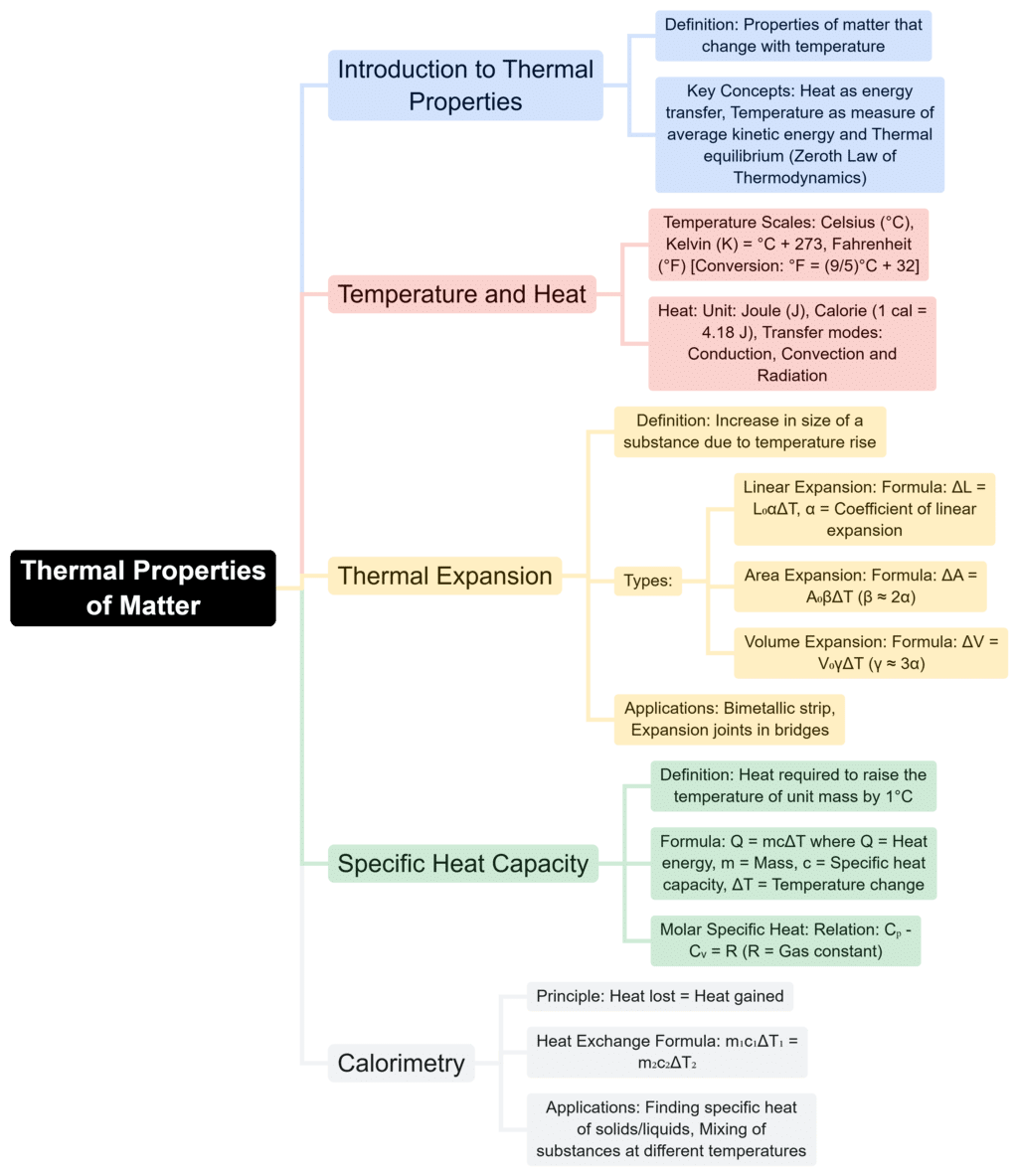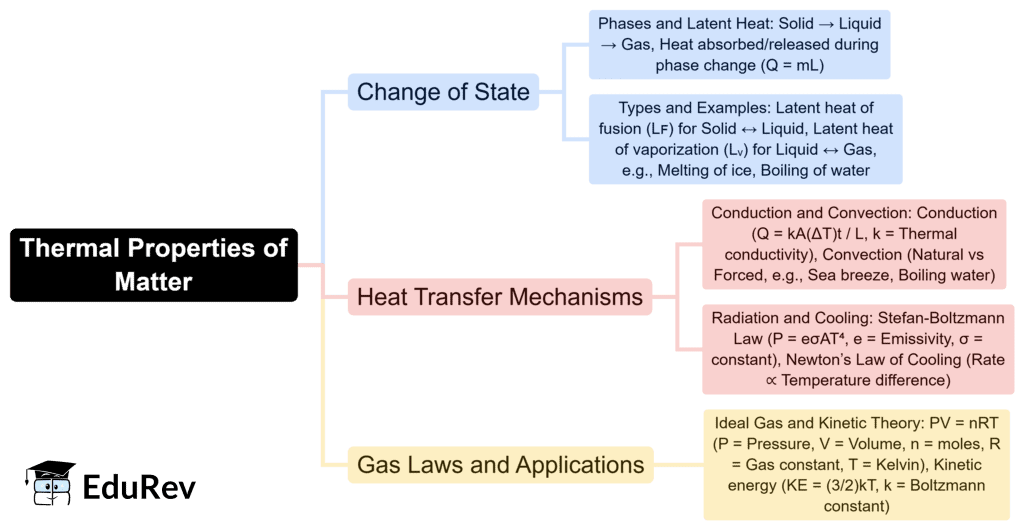NEET Exam > NEET Notes > Physics Class 11 > Mind Map: Thermal Properties of Matter
Mind Map: Thermal Properties of Matter | Physics Class 11 - NEET PDF Download


The document Mind Map: Thermal Properties of Matter | Physics Class 11 - NEET is a part of the NEET Course Physics Class 11.
All you need of NEET at this link: NEET
|
122 videos|493 docs|98 tests
|
FAQs on Mind Map: Thermal Properties of Matter - Physics Class 11 - NEET
| 1. What are the three main thermal properties of matter? |  |
Ans. The three main thermal properties of matter are specific heat capacity, thermal conductivity, and thermal expansion. Specific heat capacity refers to the amount of heat required to raise the temperature of a unit mass of a substance by one degree Celsius. Thermal conductivity measures how well a material conducts heat, while thermal expansion is the tendency of matter to change its shape, area, and volume in response to a change in temperature.
| 2. How does temperature affect the state of matter? |  |
Ans. Temperature significantly affects the state of matter by determining whether a substance is solid, liquid, or gas. As temperature increases, particles gain kinetic energy and move apart, causing solids to melt into liquids and liquids to evaporate into gases. Conversely, lowering the temperature can cause gases to condense into liquids and liquids to freeze into solids.
| 3. What is specific heat capacity and why is it important? |  |
Ans. Specific heat capacity is defined as the amount of heat energy required to raise the temperature of a unit mass of a substance by one degree Celsius. It is important because it determines how a substance responds to heat addition or removal, influencing processes such as climate regulation, cooking, and material selection in engineering applications.
| 4. What is thermal conductivity and how does it vary among materials? |  |
Ans. Thermal conductivity is a measure of a material's ability to conduct heat. It varies significantly among different materials; metals typically have high thermal conductivity, meaning they transfer heat quickly, while insulators like wood and plastics have low thermal conductivity. This property is crucial in applications such as building construction and thermal insulation.
| 5. What is thermal expansion and how does it affect structures? |  |
Ans. Thermal expansion is the tendency of matter to change its volume in response to changes in temperature. As materials heat up, they expand, and when they cool down, they contract. This property can lead to structural issues in buildings and bridges if not properly accounted for, necessitating the use of expansion joints to accommodate movement and prevent damage.
Related Searches

















